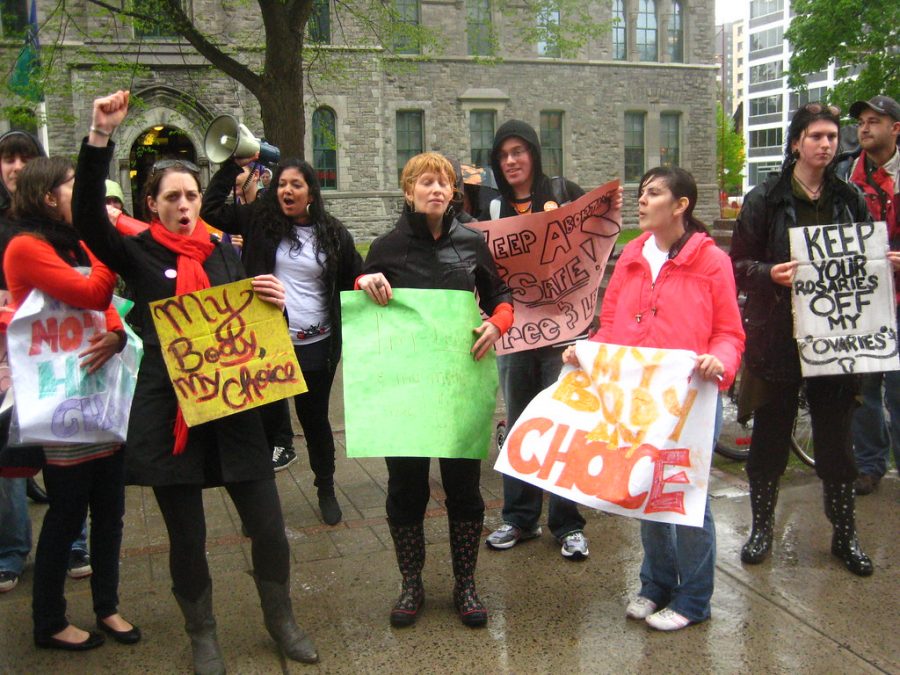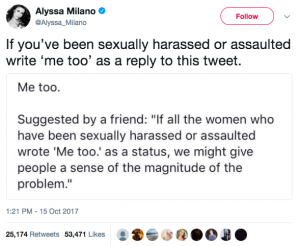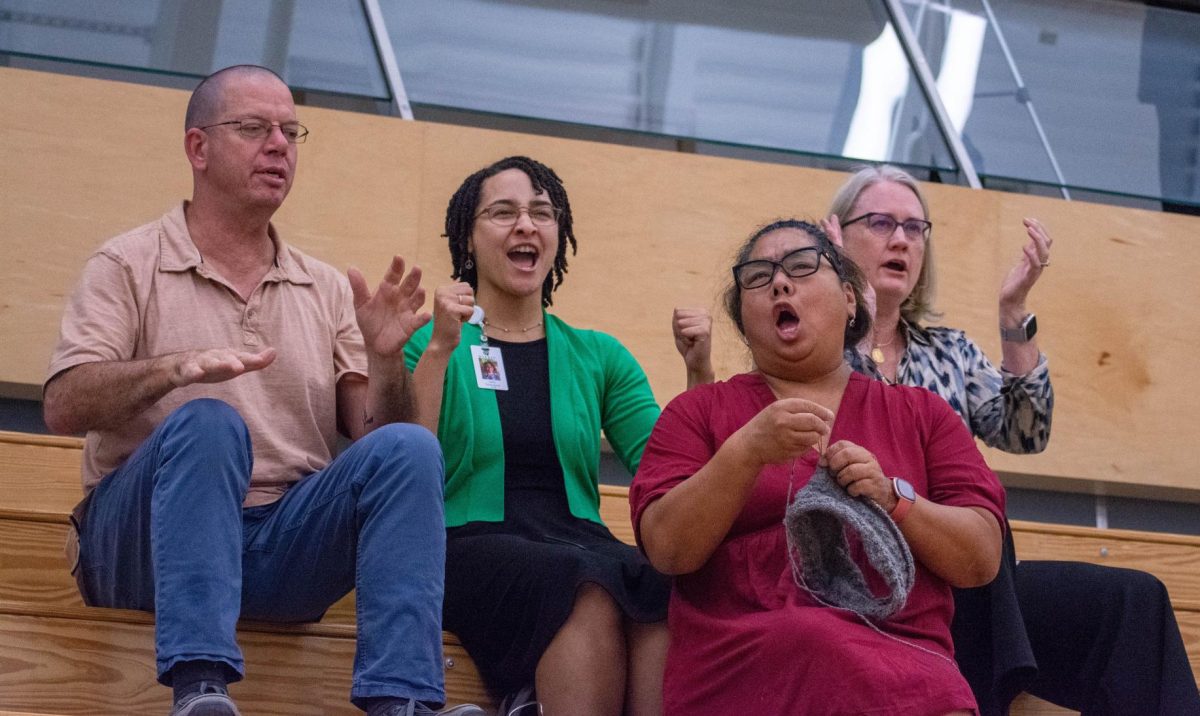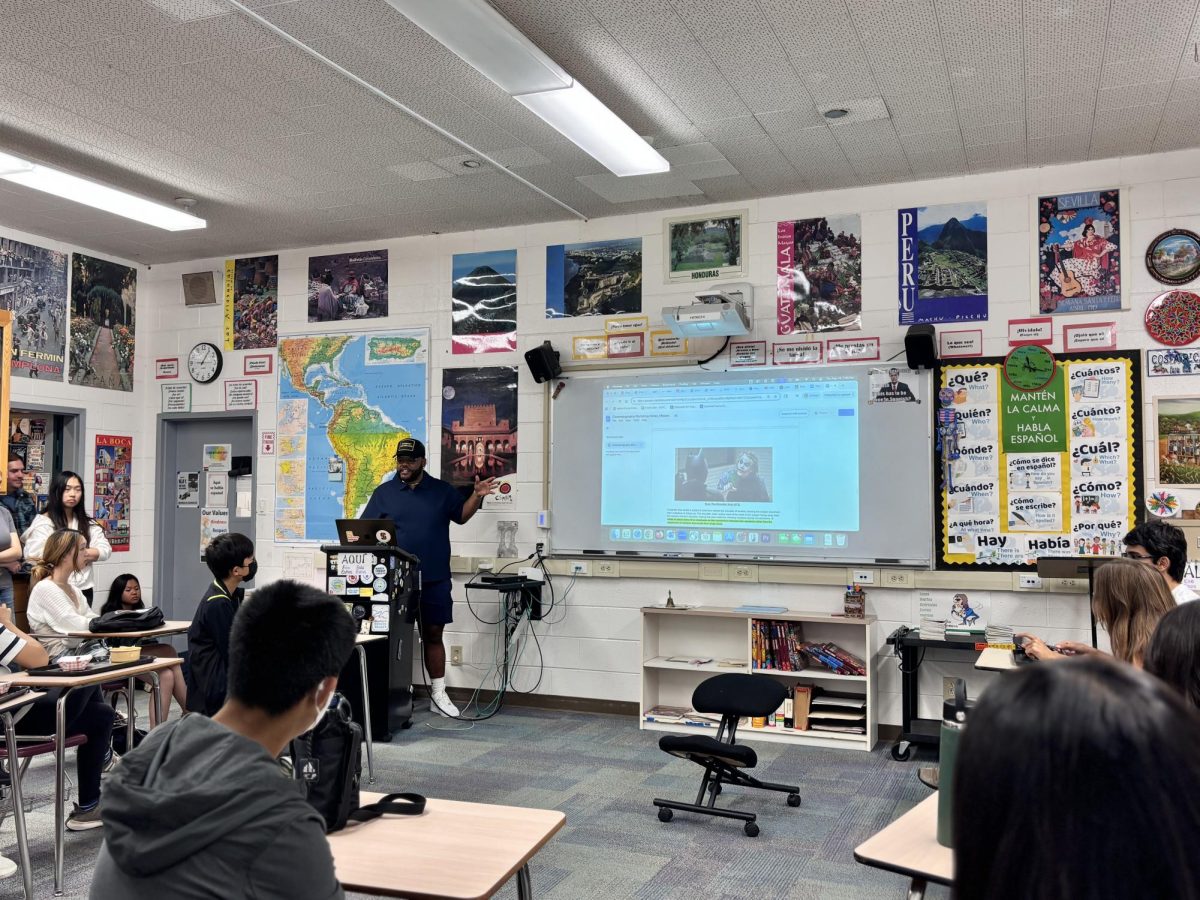States across the country pass restrictive anti-abortion legislation
Provided by Jenn Farr from Creative Commons
Protestors at a pro-choice rally hold signs defending their rights to make decisions about their bodies. Organizers have begun planning rallies in Alabama, with a large social media movement encouraging women to share their stories of abortion in order to de-stigmatize the issue.
May 17, 2019
Following a wave of anti-abortion legislation that has recently risen up to challenge federal law, Alabama Governor Kay Ivey signed the nation’s most controversial abortion bill into law last Tuesday night, creating a near-total ban on abortions, except in the case of a life-threatening situation. A week prior, Georgia Governor Brian Kemp signed into effect a bill criminalizing any attempt at abortion once a heartbeat is detected.
Several other states have followed suit, including Ohio and Mississippi. Missouri moved closer to passing an anti-abortion law of its own, introducing a ban on abortion at eight weeks into the gestation period, without exceptions for rape and incest.
Though none of the bills have gone into effect, they will be put into action within the next six months. Alabama’s law will go into effect first in November, with the rest of the states’ respective bills being put into effect in Jan. 2020. As the question of the legality of abortions is held in contention across the country, the issue has become extremely polarized, breeding another point of stark divide between conservative and liberal viewpoints.
These bills are expected to receive challenges from various liberal groups such as the ACLU and Planned Parenthood, possibly resulting in cases that find their way up to the Supreme Court, which now constitutes a conservative majority, thereby posing the possibility of overturning the 1973 decision in Roe v. Wade that legalized abortion.
The legislation has drawn strong reactions from both sides, as well as varying praise and criticism from dominant political leaders across the country.
Dan LaBouve, a Monte Sereno City Councilmen, is one of those unhappy with the polarization of the abortion debate, as he believes the issue is personal and private, and should be kept separate from the spheres of personal life which lawmakers can influence.
“[Abortion] should be a personal decision between a woman and her doctor. It’s such a deeply personal decision one way or another, and I can’t imagine that any woman would do this without a deep emotional understanding of how big of a decision it is. No one else should come in the middle of that, especially not male legislators who are trying to dictate the rules to these women,” LaBouve said.
Others however, feel that the aggressive political stance on the issue obstructs productive discussions and actions that can beget a compromise. Wynette Sills, director of the non-profit Californians for Life, a pro-life organization which works to educate pregnant women about the alternatives to abortion through science, believes that California’s stance towards abortion has attacked pro-life groups like her own and deterred progress.
“Here in California we are dominated by a very aggressive pro-abortion democrat majority – as an example of that, just a few years ago, they passed a law that was really intended to cause harm to all life-affirming pregnancy clinics. It all comes back to the issue of if you’re pro-choice or pro-abortion. If someone’s pro-choice, I can sit down with them and have a discussion and try to find a solution, otherwise, it’s hard to take a different approach to tackling the problem,” Sills said.
Regardless of the politicization of the issue, the laws have drawn strong criticism from several individuals across the country. In posts going viral across social media platforms, several have emphasized a woman’s fundamental “right to choose,” as well as expressed criticism for the lack of diversity within the ruling bodies who proposed and eventually got these laws passed.
In Alabama’s case, the law passed in their Senate in a 25-6 vote. Of the 35 senators in the state, four are women, and the 25 who voted ‘yes’ on the bill are all Caucasian men at or above the age of 30. The legislators have been called out on their decision to create legislature on behalf of the women in their state, restricting women’s individual rights to decide whether or not they have an abortion.
Anish Kilaru (10), who self-identifies as a feminist, believes that the lawmakers overstepped their duties in attempting to solve this issue as per their beliefs.
“The group of people who passed the legislation could not have possibly fully understood the issue and tried to solve it in a way that was way too extreme. We need more diversity in all these political positions so that we don’t have just one sheltered group making decisions for millions of people with lives they couldn’t understand,” said Anish.
While some see this as a step back, others look at the laws as landmark legislature which will continue to influence change.
“[These laws] are an indication of momentum all across our country of more and more people recognizing the humanity of the child in the womb and the long-term traumatic and painful impact abortion has had for women. We’re seeing positive momentum all across the country in the direction of life,” Sills said.
The laws have also inspired movements such as Busy Phillips’ “#YouKnowMe” campaign on social media, inspiring women to share their own abortion stories in efforts to reduce the stigma surrounding abortion. Stories have been shared by several prominent women, as well as several others who have gained the courage to share their story on social media.
While the country is further divided by this issue, several have pledged to take this legislation to court. Looking at political precedents, the Supreme Court’s 1973 ‘Roe v. Wade’ decision in Roe v. Wade ruled that women had a fundamental right to privacy, protecting the liberty of their decision whether or not they choose to have an abortion.
As states push forth their own legislation, they further challenge the Supreme Court’s 1973 decision, thwarting its legitimacy by enacting their own policies which go against the initial ruling. Additionally, despite there being no official cause for the sudden enactment of these laws in various states, some believe that the confirmation of Brett Kavanaugh to the Supreme Court bench has allowed primarily conservative states to push forth more right-wing policy, hoping to legitimize it through support from the Supreme Court.
“This has become a bell-weather of the culture wars. I strongly hope and would expect that very quickly in the short-term, these laws will be stayed, meaning they will not go into effect until they go through the legal system. And I really hope the legal system will do, at least what I think, is the right thing,” upper school psychology teacher Julie Turchin said.
As people take their respective stances on the issue, protests have erupted across the country. While celebrities such as Rihanna and Lady Gaga have voiced their support for the pro-choice movement, pro-choice organizers have organized protests in Alabama as well. Apart from organized protests, some have called for new opposing legislation, taking the case to the Supreme Court, or even just supporting women seeking abortions in any way possible.
“Since the laws are not fully in place at the moment, people can sue against their governments. I know there’s a law against women fleeing to another state to get an abortion, so I don’t know if that would help entirely, but just providing constant support for women who choose to get abortions and making sure this kind of legislation isn’t passed elsewhere would be a good first step,” said Renee Page, a sophomore at St. Francis High School, a Catholic high school in Mountain View, CA.
In close examination of the laws of both Alabama and Missouri, women who have been impregnated through rape or incest are not exempt from the ban on abortions. In these states, abortion is only legal in the case of a medical emergency in which the fetus poses a risk to the mother’s life. In addition, doctors who assist in an abortion can be charged with up to 99 years in prison, and women who miscarry can be susceptible to jail time as per the new Georgia law.
As a mother, Sills, who testified before Congress against the abortion pill in January 2017, understands the horror of pregnancy as a result of violent assault. However, she believes that women who are violated can still consider other options than immediately fleeting to abortion.
“Even if it was my own daughter, I wouldn’t jump to the first conclusion that you have to have an abortion. I’d say that we should take a deep breath, allow some time for healing, and then look at all of our options. We need to understand that abortions are also very brutal and violent and horrific, so in other words, you go from one act of violence right into another act of violence. You’re not erasing the rape or undoing that horrific experience; [by having an abortion], you’re just adding on another level of pain,” Sills said.
Furthermore, she values the unborn baby’s life, and feels that it is unfair to punish them for the crime committed by their father.
“I understand the toll that pregnancy takes on a woman’s body, and all the pain of childbirth, whether it be an 11-year old, or someone who is impoverished or drug-ridden. On the surface, those are very persuasive circumstances that would create a response in most functioning human hearts, but the science tells us that there’s another human being in the decision and so now what do we do? We have a victim of rape and we have another human being who is here on no act of their own,” Siles said.
Apart from encouraging an examination of other options, working to educate women first is on top of several peoples’ schedules. LaBouve believes that if state governments work together with their constituents to improve medical care, they can consequently reduce the need for abortions in the first place.
“The whole irony is that in these states, if they didn’t roll back family medical plans so much in the first place, they wouldn’t have to ban abortion because once these kids are born there would be someone who is going to help that child and support it in the long-term with the resources they now have. By providing better public services and early childhood care, we can prevent children being brought into the world who can’t be supported,” LaBouve said.
In the end, many believe that the issue should be personal, free from the law, and free from the opinion of others.
“There’s this idea of attitude polarization. We have a tendency to think people on the opposing side of issues than us, that their beliefs are more extreme than they are. And that gets exacerbated if we only talk to people that think like us. I think in the end, a majority of people think the number of abortions should be reduced – does anybody think that you should abort a child at 28 weeks just because you don’t want a girl? No. Honestly, a life is a life, and in the end, it should be the mother’s decision about what to do with her unborn child,” Turchin said.


















![“[Building nerf blasters] became this outlet of creativity for me that hasn't been matched by anything else. The process [of] making a build complete to your desire is such a painstakingly difficult process, but I've had to learn from [the skills needed from] soldering to proper painting. There's so many different options for everything, if you think about it, it exists. The best part is [that] if it doesn't exist, you can build it yourself," Ishaan Parate said.](https://harkeraquila.com/wp-content/uploads/2022/08/DSC_8149-900x604.jpg)




![“When I came into high school, I was ready to be a follower. But DECA was a game changer for me. It helped me overcome my fear of public speaking, and it's played such a major role in who I've become today. To be able to successfully lead a chapter of 150 students, an officer team and be one of the upperclassmen I once really admired is something I'm [really] proud of,” Anvitha Tummala ('21) said.](https://harkeraquila.com/wp-content/uploads/2021/07/Screen-Shot-2021-07-25-at-9.50.05-AM-900x594.png)







![“I think getting up in the morning and having a sense of purpose [is exciting]. I think without a certain amount of drive, life is kind of obsolete and mundane, and I think having that every single day is what makes each day unique and kind of makes life exciting,” Neymika Jain (12) said.](https://harkeraquila.com/wp-content/uploads/2017/06/Screen-Shot-2017-06-03-at-4.54.16-PM.png)








![“My slogan is ‘slow feet, don’t eat, and I’m hungry.’ You need to run fast to get where you are–you aren't going to get those championships if you aren't fast,” Angel Cervantes (12) said. “I want to do well in school on my tests and in track and win championships for my team. I live by that, [and] I can do that anywhere: in the classroom or on the field.”](https://harkeraquila.com/wp-content/uploads/2018/06/DSC5146-900x601.jpg)
![“[Volleyball has] taught me how to fall correctly, and another thing it taught is that you don’t have to be the best at something to be good at it. If you just hit the ball in a smart way, then it still scores points and you’re good at it. You could be a background player and still make a much bigger impact on the team than you would think,” Anya Gert (’20) said.](https://harkeraquila.com/wp-content/uploads/2020/06/AnnaGert_JinTuan_HoHPhotoEdited-600x900.jpeg)

![“I'm not nearly there yet, but [my confidence has] definitely been getting better since I was pretty shy and timid coming into Harker my freshman year. I know that there's a lot of people that are really confident in what they do, and I really admire them. Everyone's so driven and that has really pushed me to kind of try to find my own place in high school and be more confident,” Alyssa Huang (’20) said.](https://harkeraquila.com/wp-content/uploads/2020/06/AlyssaHuang_EmilyChen_HoHPhoto-900x749.jpeg)













